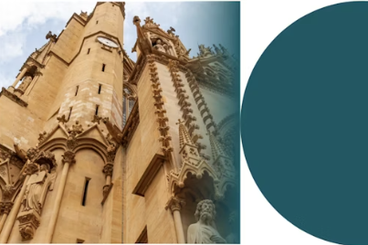
Deadline : 28 November 2025
Una-Her-Doc is a joint doctoral programme developed by nine Una Europa universities.
It offers doctoral candidates the opportunity to carry out a research project in Cultural Heritage Studies under co-supervision between two partner universities — a Home university (where the candidate is enrolled) and a Host university (where a second supervisor is based).
Graduates of Una-Her-Doc obtain:
The programme promotes mobility, interdisciplinarity and multilingualism, preparing a new generation of researchers and professionals ready to work across Europe in the field of cultural heritage.
For detailed information, visit the official Una Europa pages:
Una-Her-Doc candidates engage in one of four Transnational Research Teams (TRTs) that connect doctoral projects across the alliance:
Each TRT evolves dynamically, fostering interdisciplinary collaboration across Una Europa institutions.
Una-Her-Doc is ideal for doctoral candidates who:
Step 1 – Find your main supervisor (Home university)
Contact a PhD supervisor in one of the nine Una Europa universities. See the “Teaching team” section on the Una Europa website.
Step 2 – Choose your co-supervisor (Host university)
Select a co-supervisor in another Una Europa institution. You will need recommendation letters from both supervisors.
Step 3 – Apply and enrol at your Home university
Submit your PhD application by your Home university’s deadline.
(In some institutions, this step may precede Step 1 — check local rules.)
Ensure that you also meet the Host university’s admission requirements.
Step 4 – Submit your Una-Her-Doc application
Prepare your application package together with your supervisors and submit it by 28 November 2025 to the Una-Her-Doc Joint Doctoral Committee member of your Home university.
Stage 1 – Selection
The Una-Her-Doc Joint Doctoral Committee reviews applications. Successful candidates are admitted to the programme.
Stage 2 – Enrol at Host university
Once accepted, candidates contact the administrative office at their Host university to complete enrolment.
Stage 3 – Co-supervision agreement
A bilateral agreement is signed between the two universities, defining degree conditions, defence rules, and periods of mobility.
Stage 4 – Cultural Heritage Expert Committee
Each candidate is assigned a committee with at least two researchers from two Una Europa universities other than the Home and Host.
The committee provides feedback and meets annually with the candidate and supervisors.
Fees
Registration in Una-Her-Doc is free of charge. Local fees apply for enrolment in the Home and Host universities. The distribution of fees is defined in the co-supervision agreement.
Funding
The programme itself does not award grants, but several universities offer financial support under local schemes.
At the University of Bologna, PhD candidates are normally fully funded through scholarships and research allowances.
Calls for applications are launched each spring, and programmes typically start on 1 November.
Submit your Una-Her-Doc application by 28 November 2025 to the member of the Una-Her-Doc Joint Doctoral Committee at your Home university.